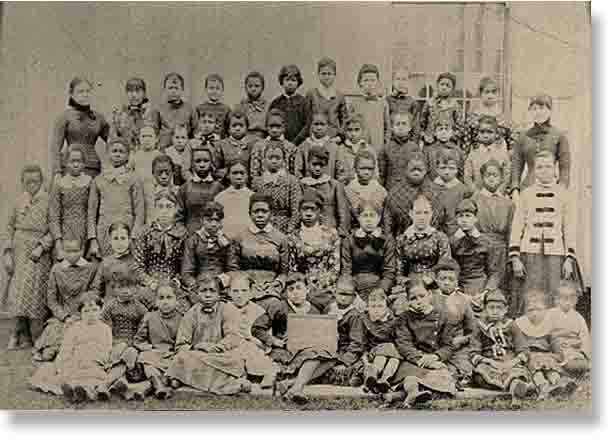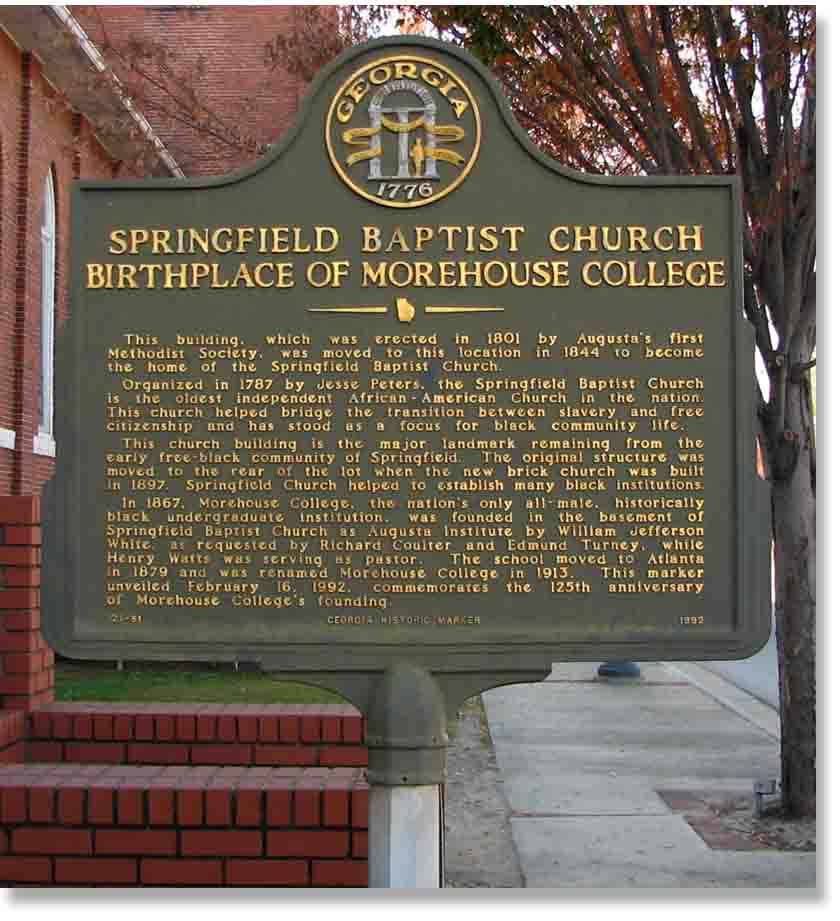 |
|||||
 |
|||||
HISTORY OF SPRINGFIELD
FREE AFRICAN AMERICANS IN THE OLD SOUTH
SPRINGFIELD: BEGINNINGS TO CIVIL WAR
CIVIL WAR, RECONSTRUCTION, AND NEW SOUTH
SPRINGFIELD BAPTIST AND AFRICAN AMERICAN EDUCATION
Grades 1 Through 7 at the Fourth Ward School, Augusta, Around 1888. (Source: Georgia Archives, Vanishing Georgia Collection, Image ric060).
|
SPRINGFIELD BAPTIST AND AFRICAN AMERICAN EDUCATION One of the most highly valued benefits of freedom, was the opportunity for education, which became more widely available to African Americans after emancipation. Springfield Baptist Church had an important role in the educational development of the community as it established the Augusta Baptist Institute in 1866, renamed Morehouse College after it moved to Atlanta in 1879. After emancipation, education became available to African Americans. Educational opportunities continued to expand and by 1875 Richmond County contained 16 schools designated for African Americans. Community leaders continued pushing for a high school, which they received in 1880. Educational opportunities stopped developing, however, as segregationist attitudes grew stronger. The clearest illustration of this was the Board of Education’s decision to close Springfield’s Ware High School, the only public prep school for African Americans in the state. Despite protests by prominent African Americans and pursuit of the case to the United States Supreme Court (Cumming v. Richmond County Board of Education, 175 U.S. 528 [1899]), the decision stood. |
|
Historical Marker Commemorating the Establishment of Morehouse College at Springfield Baptist Church in 1867. One of the benefits of freedom, and the most highly valued, was the opportunity for education, which became more widely available to African Americans after emancipation. Springfield Baptist Church had an important role in the educational development of the community as it established the Augusta Baptist Institute in 1866, renamed Morehouse College after it moved to Atlanta in 1879. (Photo by Staci Richey, New South Associates, Inc.).
|

